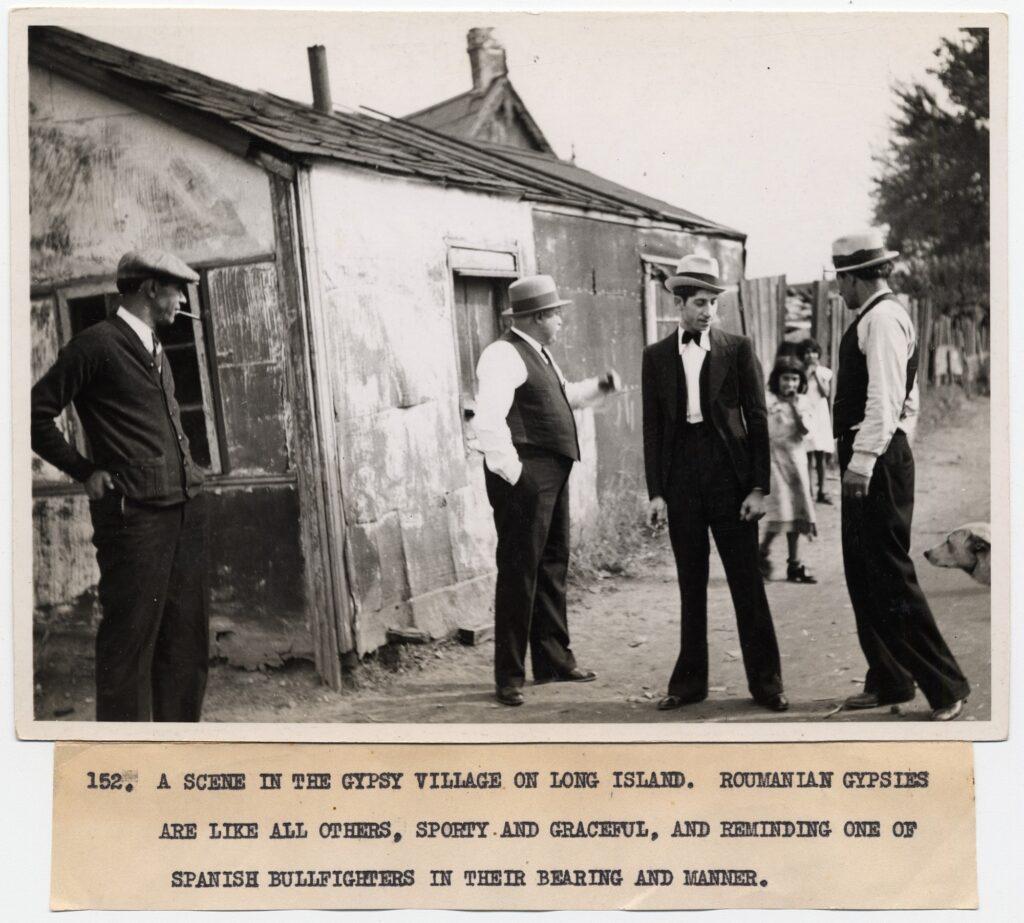To the Romanies encamped along Maspeth Ave, Maspeth, Christmas is just Dec. 25, but Jan. is something else, again. According to the customs of these nomads, the annual celebration which very largely corresponds with Christmas, falls on January 6.
From the wrinkled old woman who sits by the fire in one of the tents and spends the days alternately sleeping and smoking a great pipe, to the youngest curly head playing about the camp, every Romany is eagerly talking of and preparing for the big celebration.
There will not be any great exchange of gifts, for the nomads are not over-supplied with money. However, there will be gifts exchanged, and though the monetary value may be small, the affection for each other among these temporarily stationary nomads is so great, that real happiness will go with their gifts, the happiness generated by affection. But the big feature of the day will be the community barbecue.
Preparations are being made for the purchase early next week of pigs and sheep. From the time the animals are brought to the camp, they will be given every care and fattened for Jan. 6. On the night of Jan. 5, the animals will be slain during solemn ceremonies in which all the camp will take part. Then they will be placed upon long, green poles and placed over charcoal pits prepared in advance.
During the night men of the camp will watch over the broiling animals. From time to time the pole will be given a slight turn so that another part of the body may be subjected to the great heat from the charcoal pits. When morning comes the women and girls of the camp will begin the preparation of great pots of vegetables, the baking of bread and cakes and the setting of a great table.
When the spluttering carcasses are considered by the watchers to be ready, then the men will carry them to the tables and a feast will begin which will last until every scrap of food has been devoured, even the bones disappearing with the aid of the camp dogs.
During the feast there will be music and dancing. The music will be supplied by men of the camp, many of whom are natural and expert players of string and wind Instruments. Playing at dances for the “gajos” has introduced these dark-skinned musicians to American jazz, and the music at this ancient feast in a land far from that where it originated will be a mixture of modern jazz and ancient folk dances, while the dancers will exhibit their ability at the old. sinuous dances of the race and the snappy, peppy, modern Charleston and, yes, even the Black Bottom.



